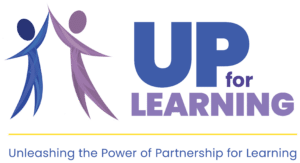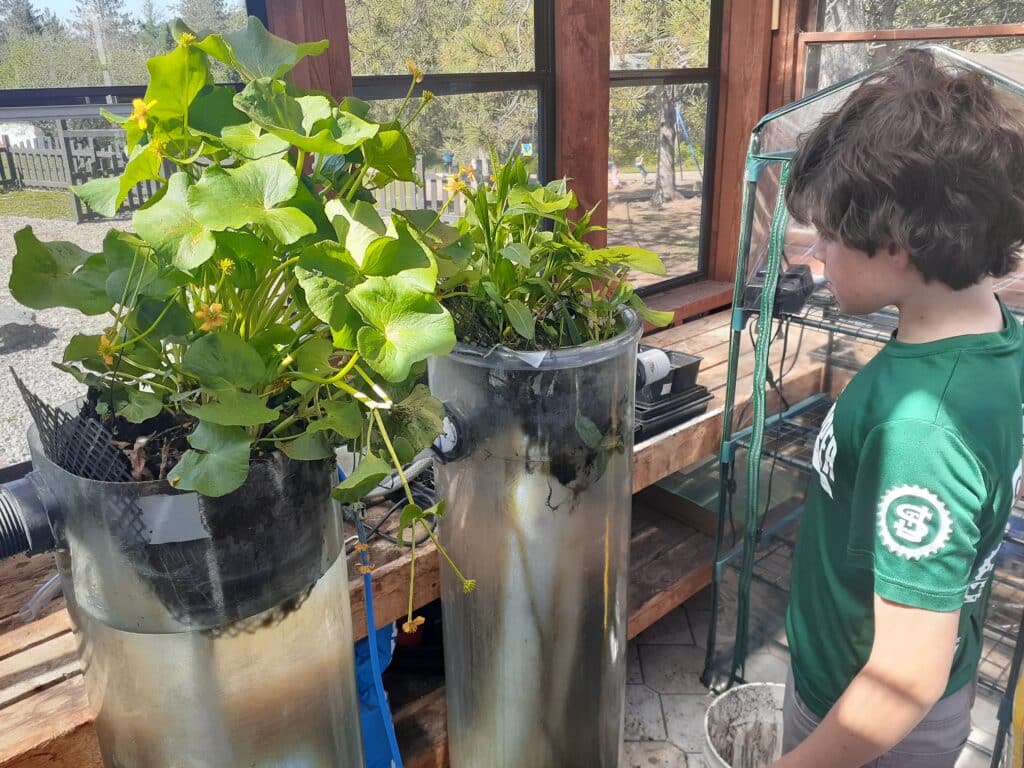
Cultivating Pathways to Sustainability (CPS), a joint program of UP for Learning and Shelburne Farms, brings together youth and adults from around the world to connect and collaborate as they enact local projects in their communities. The program provides teams with the resources, vision, and foundation to create action projects rooted in youth-adult partnership and the UN Sustainable Development Goals (SDGs). Over the 2022-2023 school year, teams created local projects that will have lasting change.
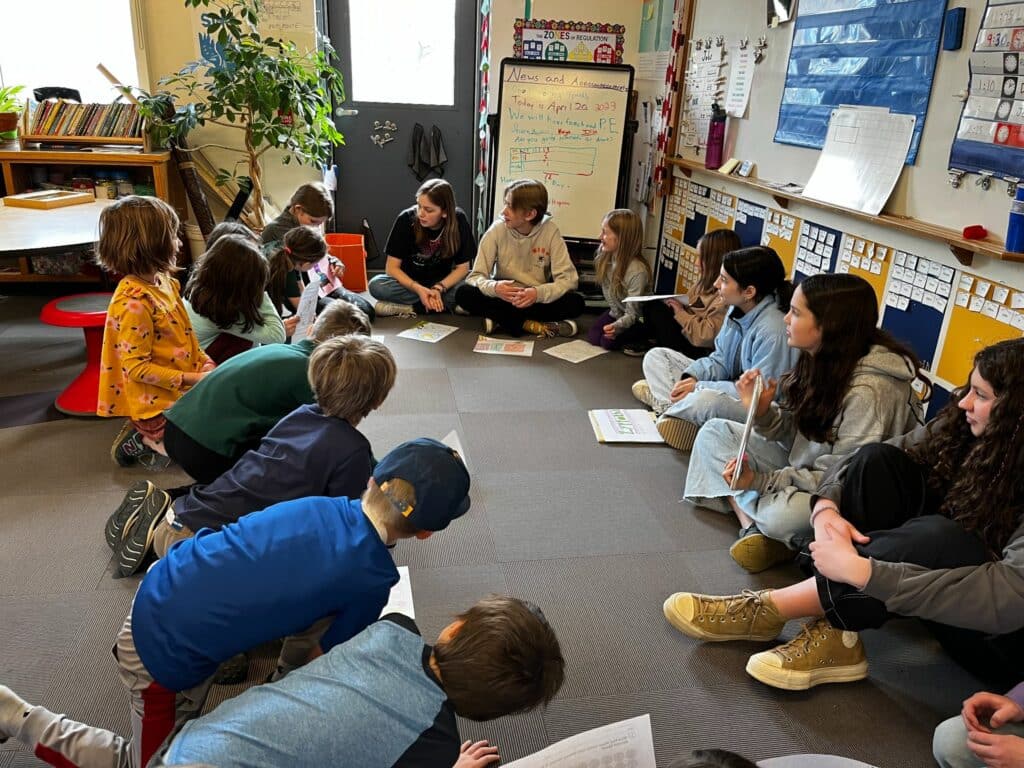
Burke Town School in Vermont completed the CPS journey with the entire 8th grade. Humanities teacher Brandon Mazur led the group through their year-long journey, with students working in small groups on ten total projects, including creating a gaga ball pit at their school, building a community garden, putting together backpacks filled with essentials for unhoused members of their community, designing and advocating for a new playground in an under-resourced part of their town, addressing farm water runoff with educational materials, creating a biofilter for the school grounds, resigning a dangerous intersection, planning for a new gym, adding more diverse foods to the school cafeteria, and including Scottish games in PE classes. This team was dynamic and able to accomplish amazing projects. They all wrote grants throughout the process, engaged community partners, and identified key supporters in getting their projects completed. On June 6th, each group presented their projects to members of their community and younger grades as a celebratory way to honor their hard work.
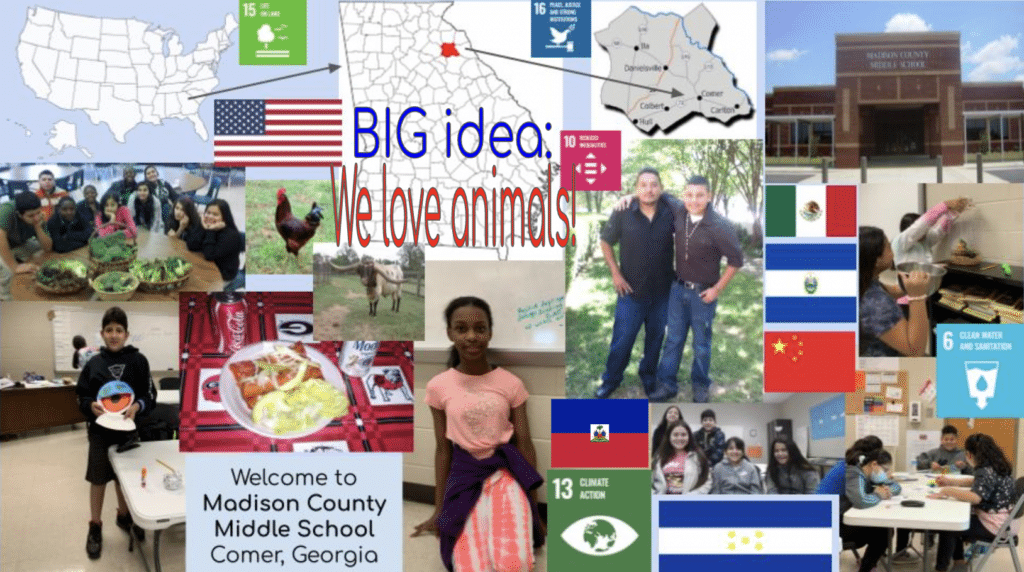
Madison County Charter School in Georgia studied their local river, addressing the community’s need for access to clean water. They studied animal and plant adaptations, pollution and its consequences. They created materials to educate their community about the value of keeping the river clean and healthy.
Harwood Union Middle School in Vermont completed two projects. One group designed lessons around culture and equity for elementary schools, focusing on books that center diversity and inclusion. The lessons were carried out at all of the elementary schools that feed into the middle school. This project addressed the global goals of quality education and reducing inequities. The second project at Harwood was a day of service. The team organized ten service projects with community partners ranging from removing invasive species, to helping at the food shelf, to trail maintenance. One June 9th the entire 7th and 8th grade classes traveled with their Teacher Advisory groups to these service projects sites to complete the work and engage with their community.
Piney Woods High School in Mississippi completed three projects. They created a sustainable candle business in which the oil for the candles was harvested from the juniper trees on campus. They created an inventory of plants in their forest to highlight and educate their community about the biodiversity on their campus. The youth leading that project reflected that “Piney Woods is built on more than 2000 acres of land. Throughout Piney Woods’ history, [teachers] have used this land to teach young Black children how to cultivate land and utilize its resources. We believe that keeping the biodiversity of Piney Woods is one of the most important things [in which we] students can participate.” The final project created a recycling system on campus in order to reduce waste and support a healthier environment.
Georgia Middle School in Vermont strengthened their previous CPS project by revamping their day of service. During the day, some of their team members improved their nature classroom, cleaned up the stream, and painted rocks. Another group built birdhouses and identified appropriate locations to hang them. 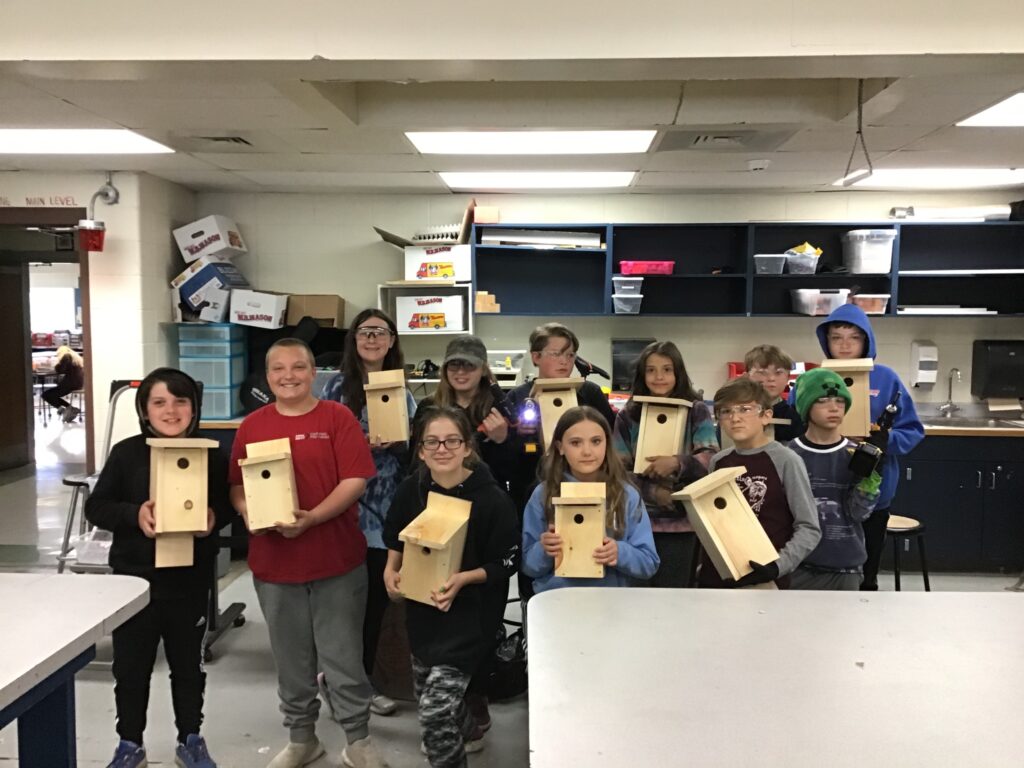
The last group completed a food drive and helped the food shelf organize, clean, and prepare food. Georgia Middle School also visited Shelburne Farms to help with an onsite service project cleaning up their sugar maple lines. After their service project, they presented to an international audience from Myanmar about their experience with CPS and their projects.
Kopila Valley School in Nepal is a CPS team of 7th and 8th graders. These students addressed air pollution in their community. The air pollution in their city is quite high, particularly during the winter months. They assessed the level of air pollution in their classrooms, households, and city paths. After that, they completed research on mitigation practices and shared these with their community.
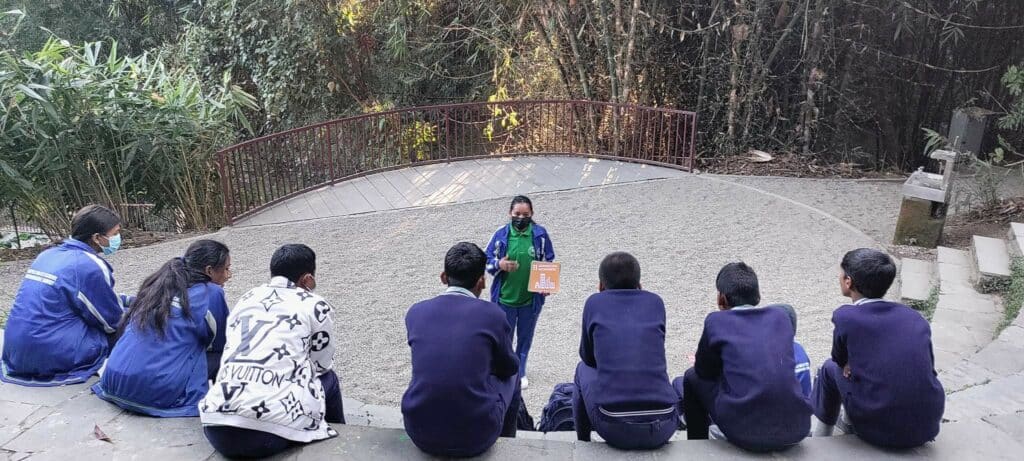
UP for Learning and Shelburne Farms are so grateful to get to witness and support these wonderful projects happening across the globe. We have created a new structure for next year and encourage you to check out our brochure. We hope to have more teams than ever participating in the 2023-2024 school year. Please join us in making the SDGs a reality!
– Katie Ingraham, CPS Program Director

